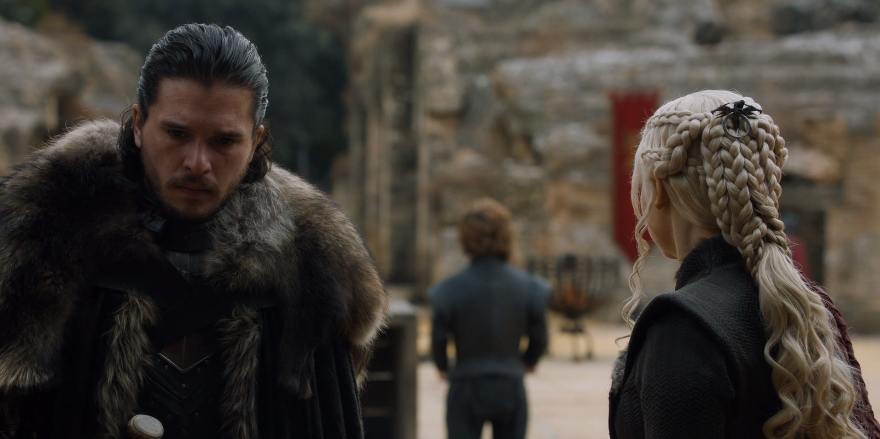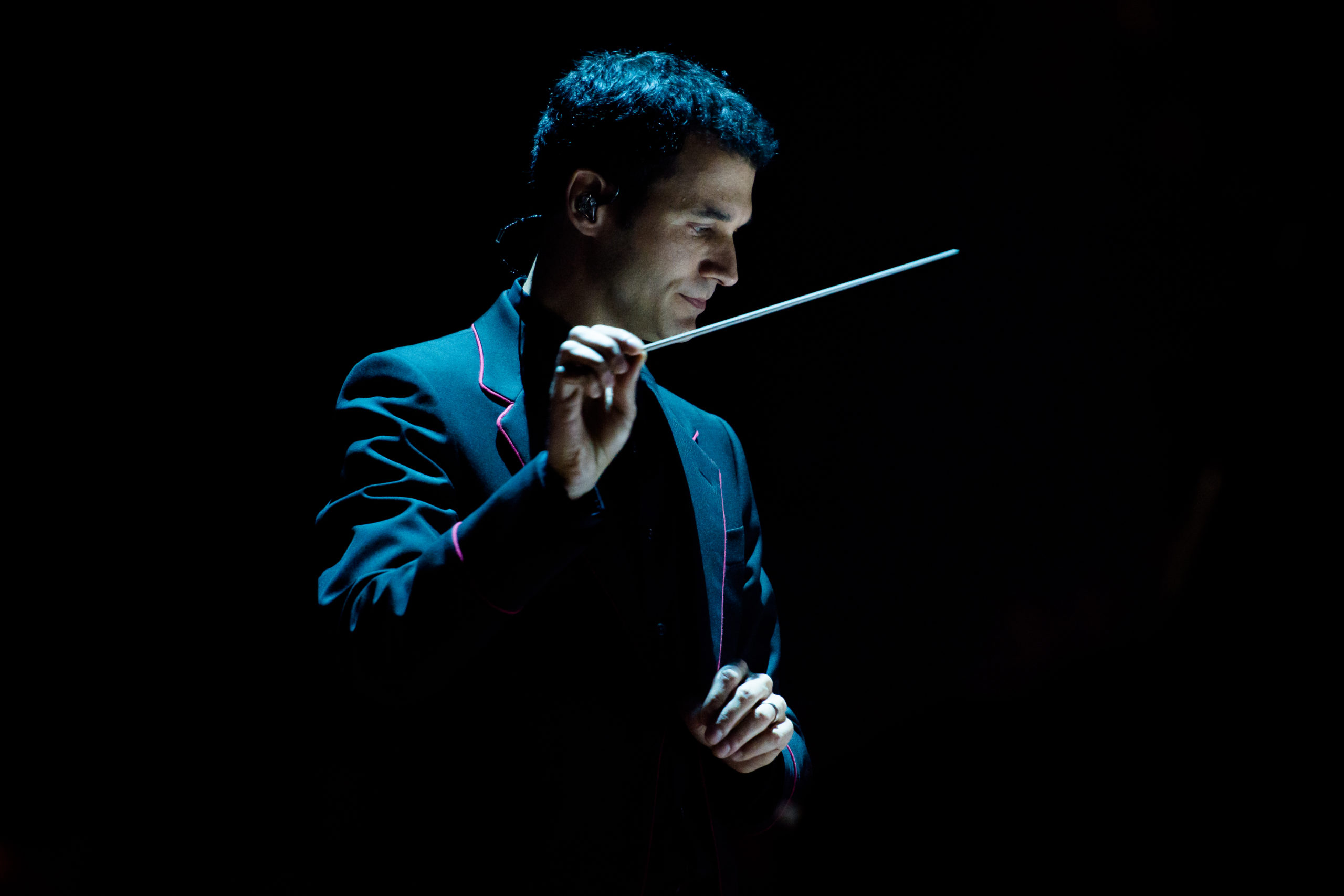It’s fun to joke that George R.R. Martin has actually not written more of the supposedly upcoming Game of Thrones books. His lack of productivity has also allowed the author to endorse another narrative: Game of Thrones, the HBO adaptation, has gone off the rails. According to George, he hasn’t had time to watch the new episodes; they’ve killed off too many characters, he says, and that’s certainly not how it’ll happen in his books. If nothing else, Martin is a meticulous plotter—maybe too meticulous, which is why the books haven’t yet finished, years after he said they would be. But after watching the semi-logical, whiplash pacing of the newly concluded Season 7, it’s easy to once agains summon enthusiasm for a more idealized vision of how the world of Westeros should really conclude.
There are just six more episodes of Game of Thrones left before the show is over forever, and still far too much to wrap up. Last night’s season finale, “The Wolf and the Dragon,” served to remind of all these plot threads dangling like Nights Watch mutineers. After years spent building up the threat of the White Walkers, the warring human factions have finally set aside their differences to combat the undead threat… for now. Cersei Lannister is planning her revenge in the background with the help of Euron Greyjoy, a once-prominent new villain who’s now reduced to off-screen machinations, and the Golden Company, a supposedly fearsome mercenary force mentioned over the course of a few seasons.
Jon Snow still has to learn he’s the secret child of Rhaegar Targaryen and Lyanna Stark, making him the theoretically rightful ruler of Westeros. Daenerys Targaryen still has to learn she just slept with her nephew. Arya Stark has to cross off the remaining list of names on her murder list; the big bad Clegane boys have to fight each other; Bran Stark still has to explain what the Three-Eyed Raven is, or what role he has in this supernatural war. The Targaryen/Lannisters have to settle their fight, once and for all. The Night King’s true identity will have to be revealed.
Theon has to redeem himself by attempting to rescue his sister, because there haven’t been enough turgid Greyjoy subplots. The leadership of the Vale has to be resolved, what with Littlefinger’s death and Robin Arryn being a little dippy dandy. The Citadel might be revisited, for all the time they spent getting there. Wild-but-plausible fan theories about the real lineage of Tyrion Lannister or the madness of Daenerys seem likely to be sidelined, for expediency’s sake. Melisandre being a spooky witch but also a frequently-incorrect dope might come back… or not. Also, Daenerys might still be able to have kids? (Something she only considered when Jon told her to consider talking to someone other than a Dothraki witch.) Sansa and Tyrion’s wedding still has to be annulled? And then there’s the whole mess of the prince who was promised prophecy, which at this point in the show could turn out to be a half-dozen characters.
To recap, the show has something like six hours to defeat a terrifying zombie army whose danger has been teased over seven seasons, as well as figure out the remaining human intrigue—which, to be clear, was the reason for the show’s initial appeal. The old line about GOT being “Lord of the Rings meets The Sopranos” carries less weight now that we’re firmly in fantasy territory of fighting a zombie ice dragon.
None of this is insurmountable. The show could wrap up everything I’ve mentioned in a few episodes, and still have room for some post-fighting denouement of ale and incest. (A precedent was the Jorah Mormont-greyscale plot, which resolved as soon as someone realized you could just pick at his scabs.) Still, it’s not creatively ideal for long-teased plot lines to turn on the drop of a hat; for characters to develop emotionally and intellectually not because it’s been effectively built, but because the story suddenly demands it. In “The Wolf and the Dragon,” it was jarring to watch Cersei Lannister—a woman who’s spent seven television years doing all sorts of heinous, self-absorbed shit—to decide immediately, Actually we should come together to fight this mysterious threat.
That Cersei was later to revealed to be playing a more secretive, selfish game felt more in-character, though narratively diminishing. As her brother Jaime explained: “If the dead win, they march south and kill us all. If the living win, and we’ve betrayed them, they march south and kill us all.” While her vanity and over-confidence have been portrayed as flaws, they’ve never made her irrelevant to the main plot. Instead of conniving, she mostly just looks stupid, a character who’s suddenly a secondary threat against this vaguer, more alarming zombie army.
Game of Thrones has never been a particularly deep show, not unless you derive your life’s ideology from mantras like “chaos is a ladder” uttered by crypto-medieval dorks. What the show had delivered, up until this season, was deliberate plotting where every action had an opposite reaction. Robb Stark ignored his betrothal to the Freys, so the Red Wedding happened; Jon Snow was rude to the Nights Watch brothers who didn’t want to work with the wildings, so he was stabbed to death. Each event moved the show forward. A butterfly would flap its wings, and a war would start—remember that the show’s entire drama was sparked by the murder of Jon Arryn, a man we never met, significant enough to send a dozen characters off on a narrative arc.
Now, we’re far past that level of consideration. Stuff is happening because it must, regardless of logic. That’s fine for a rote fantasy series, but disappointing for one with this sort of obsessive following and “prestige,” and if there are still fans expressing surprise about dopey shit like unrealistically fast ravens or boat times, they should remember it literally can’t be any other way. Not with this little time left; not with this much plot. Still, when it ends, fans who are let down won’t have to fret about what should’ve been. They’ll supposedly, eventually have the books.





